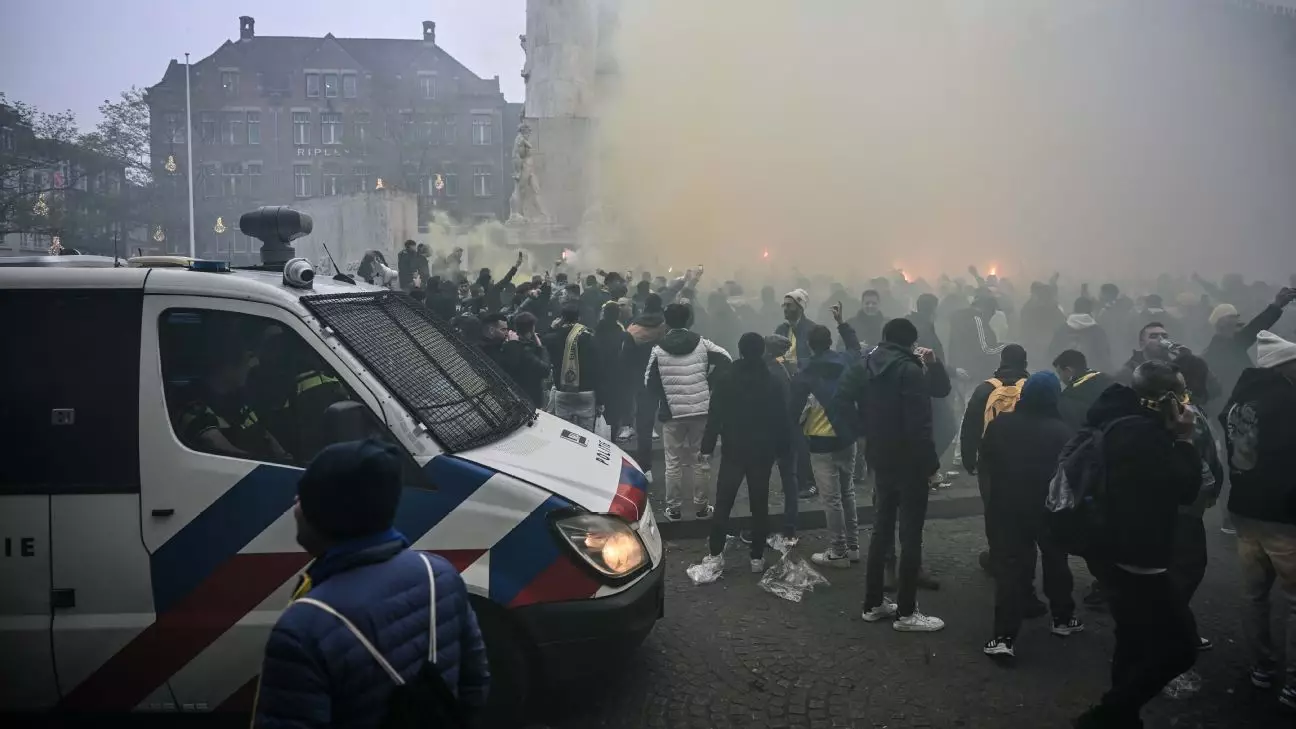The anticipated Nations League soccer match between France and Israel has become a focal point of concern, especially in light of recent events and the current geopolitical landscape. Defender Dayot Upamecano acknowledged that the expected low turnout at Stade de France is justifiable, given the heightened tensions surrounding the match. Predicted attendance figures hover around just 20,000 for an 80,000 seat stadium, raising questions about fan sentiment and safety perceptions. This situation reflects not only the particularities of recent incidents involving Israeli fans abroad but also underscores broader concerns rooted in the Israel-Gaza conflict.
The security apparatus surrounding the match illustrates the seriousness with which authorities are treating the event. With President Emmanuel Macron planning to attend, over 2,500 police officers and nearly 1,600 stadium staff will be deployed to ensure a safe environment. The need for such extensive security measures highlights the potential for disturbances, as seen last week in Amsterdam, where violence erupted among fans due to ongoing political tensions. Reports of Maccabi Tel Aviv supporters being targeted reflect a reality where sports, once seen as a unifying force, can be marred by political strife.
Recent calls from Israeli officials urging citizens to abstain from attending international sports and cultural events signal a strategic response to the rising dangers associated with such gatherings. With previous matches resulting in violence and hostility, it’s understandable that many fans would prefer to stay home rather than risk exposure to potential attacks. The statistical data presented by the French supporters’ group Les Irreductibles Français reveals that a considerable proportion of fans are opting to boycott the match, either out of fear of security risks or for personal reasons. This sentiment reflects the wide-reaching impact of the ongoing conflict, extending even into the realm of sports.
Amidst the backdrop of declining attendance and increasing hostilities, Upamecano’s comments present a thoughtful approach to the situation. He gracefully acknowledges fans’ choices while highlighting the unwavering dedication of the players to compete on the pitch. His personal desire for peace resonates beyond the confines of football, tapping into a universal longing for resolution in regions plagued by violence. While he refrains from offering opinions on whether the match venue should change, his focus remains on the sporting aspect, illustrating the balance players must strike between their professional commitments and the tumultuous world outside.
As the Nations League progresses, the stance taken on the France-Israel match may serve as a blueprint for how similar events are handled in the future. The decision to conduct matches in high-stakes environments requires careful consideration from both organizers and governing bodies like UEFA. The measures implemented this week are likely spells a crucial learning moment for European football, highlighting the intertwined nature of sport and politics and the far-reaching implications that conflicts can have on global events and fandom. This match isn’t merely a sporting event; it serves as a pulse check of the intricate relationship between politics and athletics in a divisive era.
